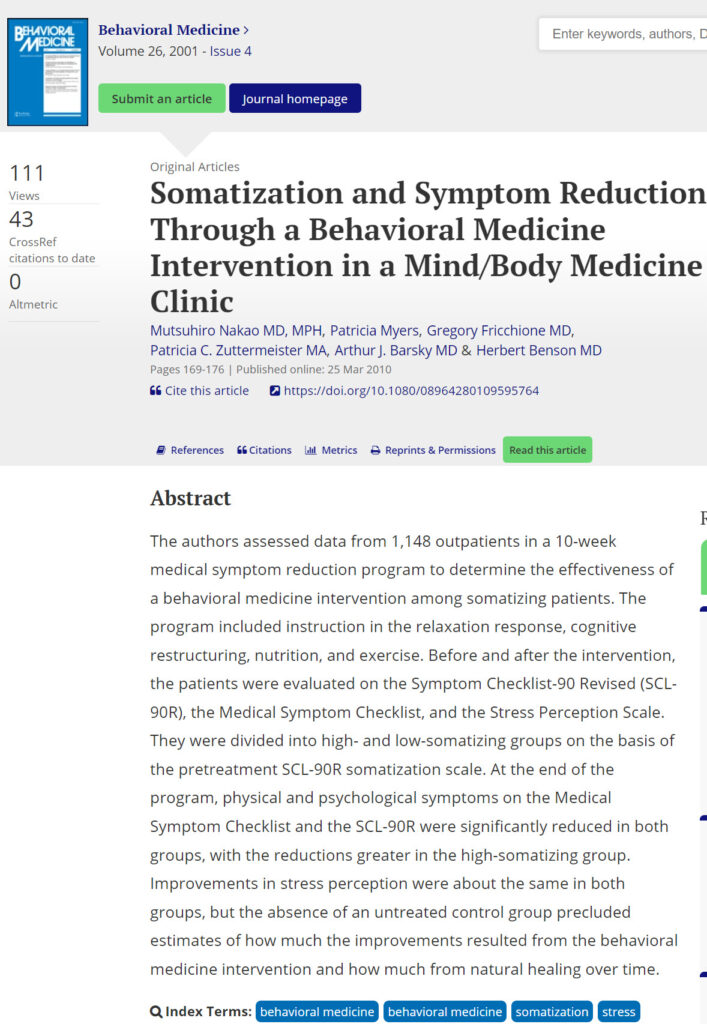The authors assessed data from 1,148 outpatients in a 10-week medical symptom reduction program to determine the effectiveness of a behavioral medicine intervention among somatizing patients. The program included instruction in the relaxation response, cognitive restructuring, nutrition, and exercise. Before and after the intervention, the patients were evaluated on the Symptom Checklist-90 Revised (SCL-90R), the Medical Symptom Checklist, and the Stress Perception Scale. They were divided into high- and low-somatizing groups on the basis of the pretreatment SCL-90R somatization scale. At the end of the program, physical and psychological symptoms on the Medical Symptom Checklist and the SCL-90R were significantly reduced in both groups, with the reductions greater in the high-somatizing group. Improvements in stress perception were about the same in both groups, but the absence of an untreated control group precluded estimates of how much the improvements resulted from the behavioral medicine intervention and how much from natural healing over time.
Somatization and symptom reduction through a behavioral medicine intervention in a mind/body medicine clinic
Publication
Behavioral Medicine
Volume 26, Issue 4
Abstract
Web and Email Links
Related Listings
Journal
Journal of Traditional and Complementary Medicine
Background and aim Mental stress represents a pivotal factor in cardiovascular diseases. The mechanism by which stress produces its deleterious effects is still under study, but one of the most explored pathways is inflammation-aging and cell senescence. In this scenario, circulating microRNAs appear to be regulatory elements of the telomerase activity and alternative splicing within the nuclear factor kappa-light-chain-enhancer (NF-κB) network. Anti-stress techniques appeared to be […]
Journal
American Journal of Physiology
Mental states can markedly alter physiologic function. Hypermetabolic physiologic states, with an increased oxygen consumption, accompany anticipated stressful situations. Hypometabolic physiologic changes, other than those occurring during sleep and hibernation, are more difficult to produce. The present investigation describes hypometabolic and other physiologic correlates of a specific technique of meditation know as "transcendental meditation". Thirty-six subjects were studied, ea […]
Journal
Scientific American
A very readable introduction to the scientific findings in neurology about primarily Buddhist forms of meditation.

